Article begins
A growing number of Moroccan women are saddling up in the male-dominated world of equestrian tradition.
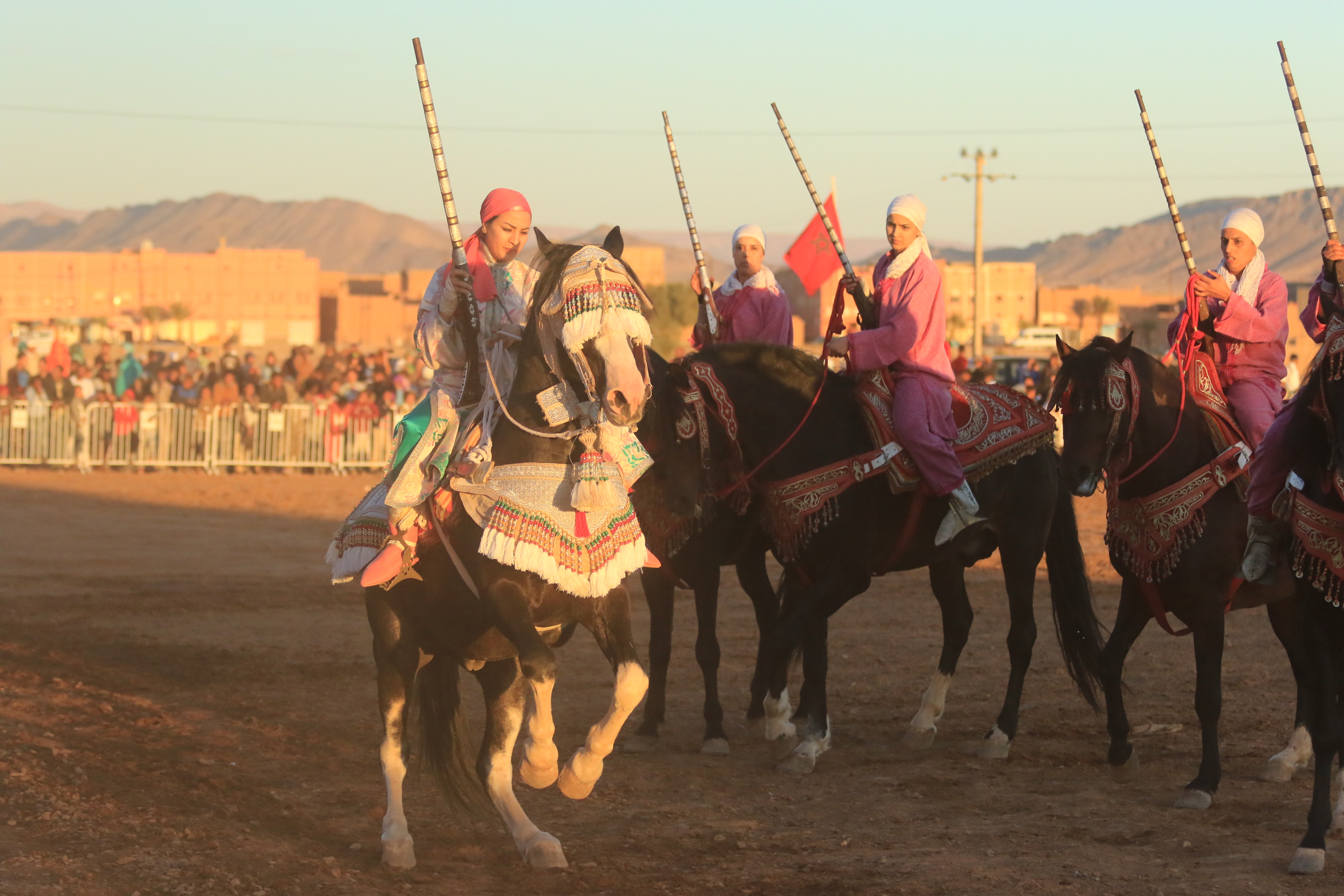
Sharam Sheik’s trick of standing on his hind legs shows Amal’s prowess as a horsewoman and leader of her troupe in Zagora. January 2016. Gwyneth Talley
A quick prayer and kisses on the cheek, and the women mount their magnificent Barb horses. The horses form a cavalry line at one end of the field, ready to charge; at their leader’s command, they start at a trot, holding their gunpowder rifles close. On the next command the women and horses accelerate to fast gallop, stand in their stirrups, and raise their rifles. Soon all is bells jingling on saddles, dust in the air, and the tremor of hoofbeats. Seconds after the final command of “HUP,” the team fires their rifles in the air and reins in their horses for a synchronized stop. It’s a dangerous sport–typically for men.
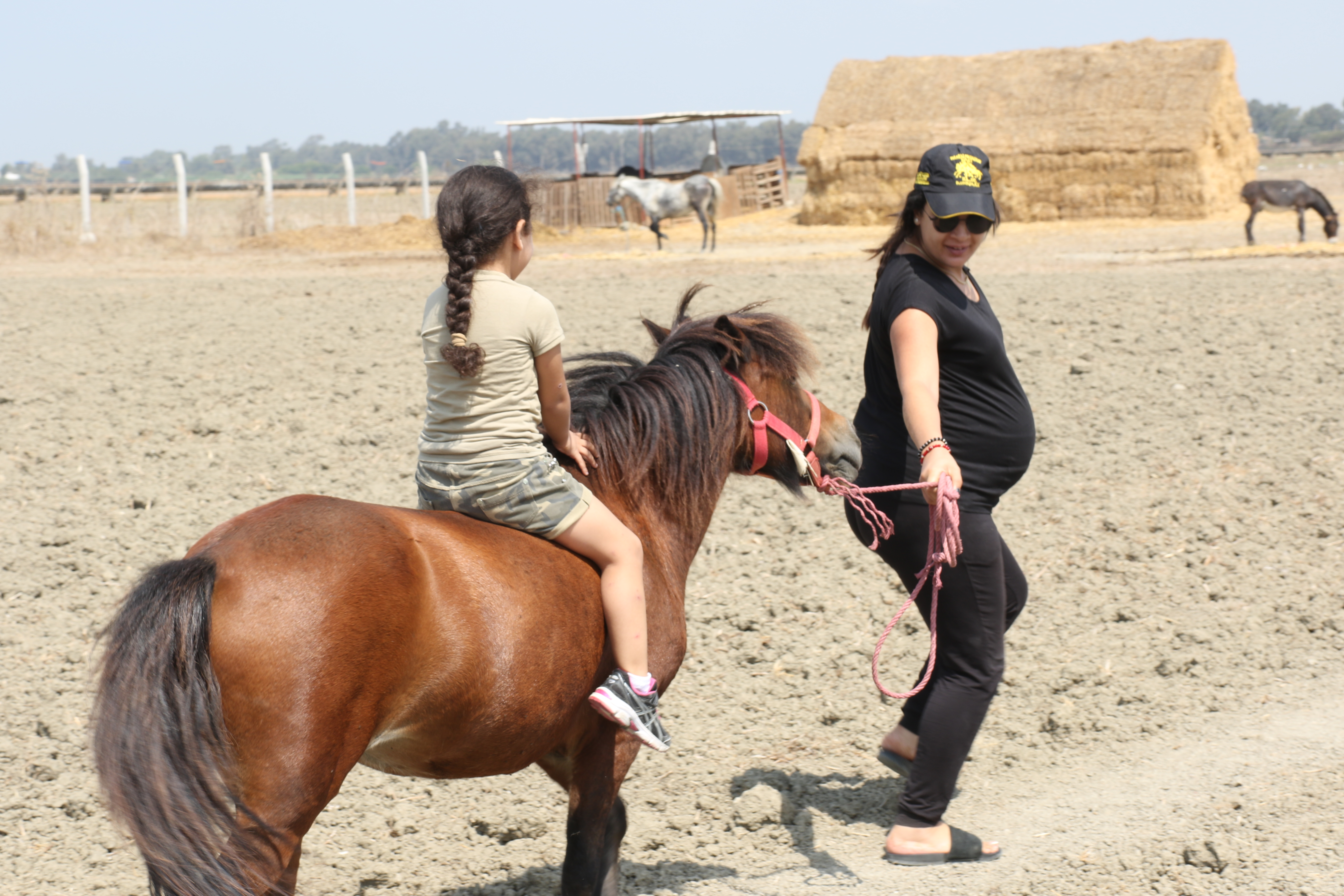
Amal leads her daughter Lilia on her pony at the family farm outside Kenitra. September 2017. Gwyneth Talley
In Morocco, horse-crazy girls are part of a small, but growing group of women competing in the all-male equestrian sport of tbourida. I found Amal through Facebook in 2012, and we became fast friends. She was one of the first leaders of an all-female tbourida troupe and eventually became my principal research participant.
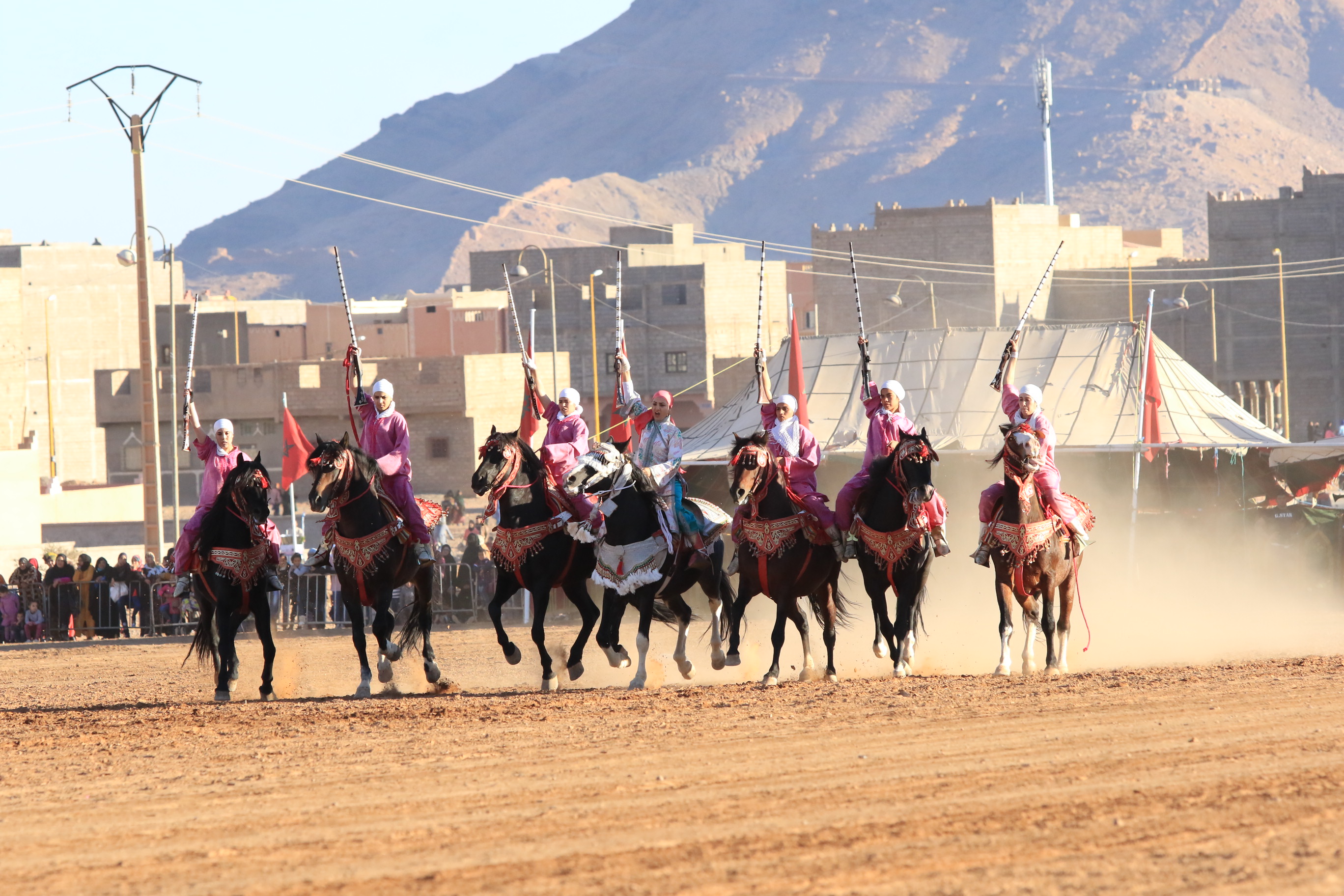
Amal (center), on Sharam Sheik, gallops with her all-female team in the middle of a tbourida maneuver at a festival in Zagora. January 2016. Gwyneth Talley
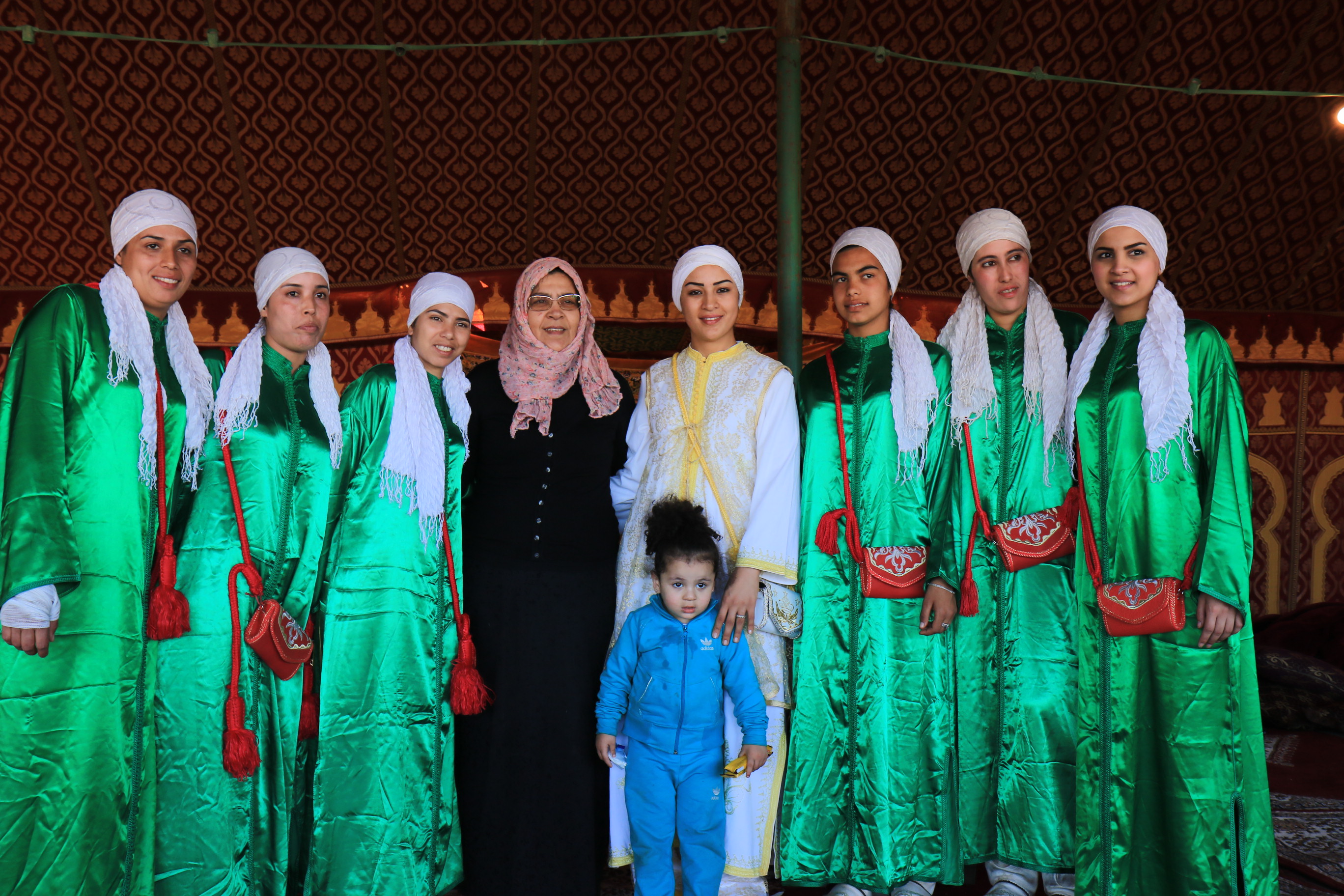
Horses aside, Amal’s family and friends are the lifeblood of the troupe. When they are not performing tbourida, the group gathers for social occasions. From left to right: Sanaa; Saida; Fatima; Amal’s mother, Touria; Amal; Amal’s daughter, Lilia; Manar; Bedia; and Amal’s youngest sister, Nourelhouda. Zagora. January 2016. Gwyneth Talley
Tbourida, also known as fantasia, is a centuries-old cavalry maneuver with deep roots in the Maghreb. Riders would charge toward their enemies, firing rifles, wheeling around to regroup, reload, and attack again. Historically, riders performed tbourida in tribal raids and celebrations. Today, it is still performed at saint day celebrations and local festivals.
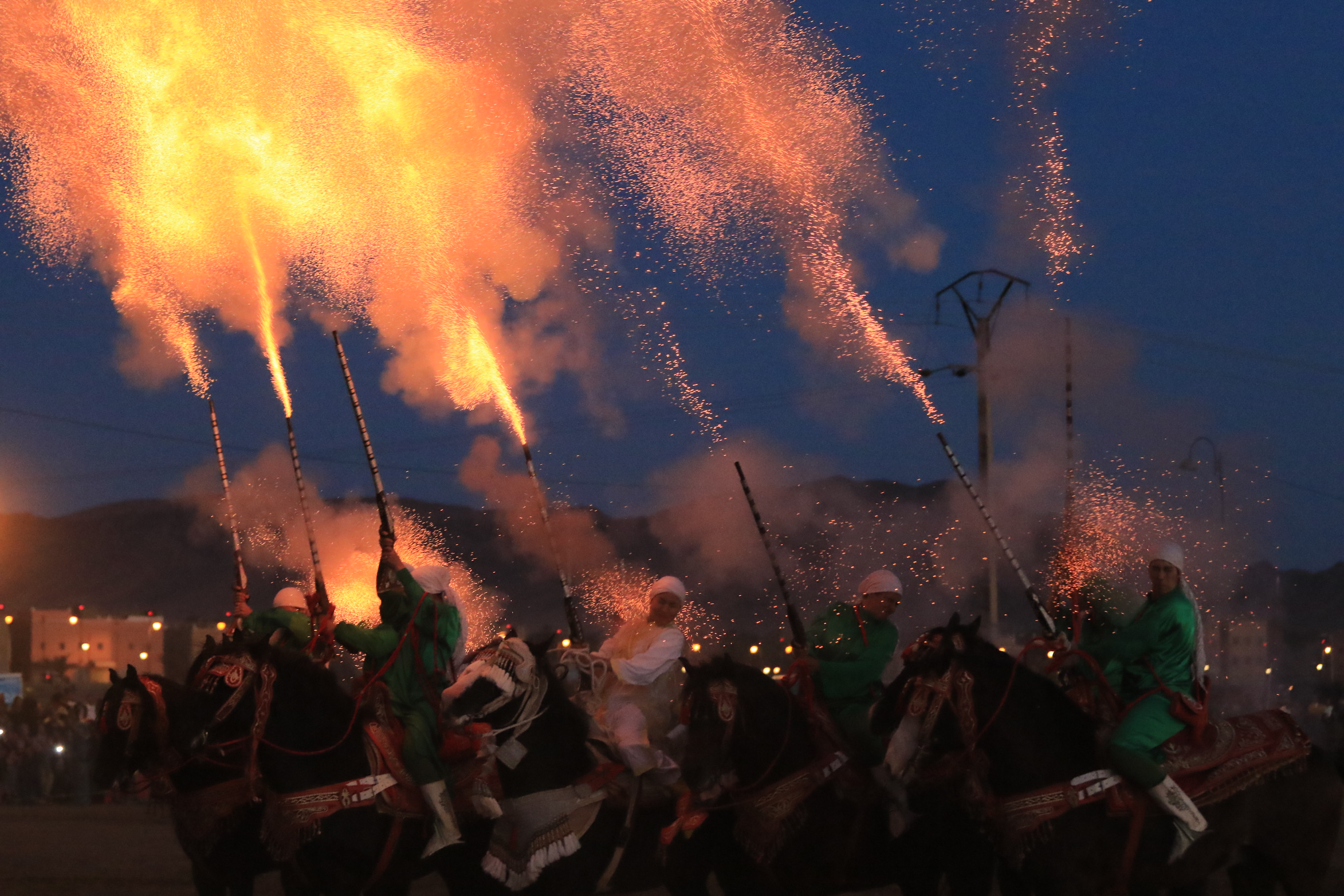
Night fire. Amal’s troupe discharges their rifles in almost perfect synchronization at the end of a day’s festivities. Zagora. January 2016. Gwyneth Talley
In the early 2000s, King Mohammed VI instituted new reforms to benefit women, specifically the Family Law Code. The 2004 revisions to the law granted women freedom from the male guardian, the right to divorce, and child custody. Amal and her sisters were riding horses and coming of age during these changes. The king also appointed his aunt, Princess Lalla Amina, as the first female president of the Royal Moroccan Equestrian Federation. In 2005, the princess instituted an all-women’s class for the tbourida competition; Amal’s team competed, winning medals in 2006, 2007, and 2008.
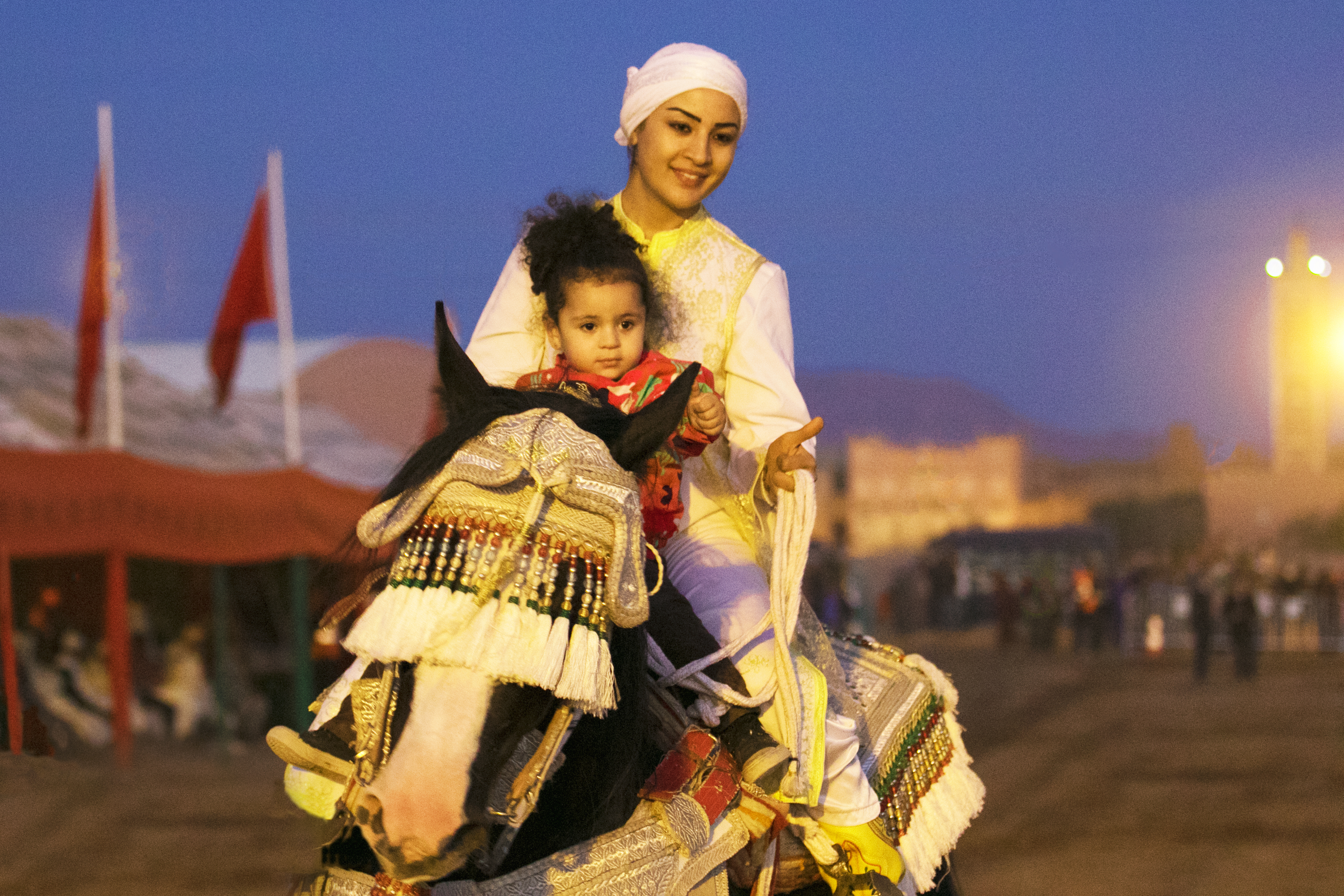
Amal and Lilia ride confidently on Sharam Sheik after a day of tbourida. Lilia shows little fear when boosted up to ride horseback. Zagora 2016. Gwyneth Talley
In 2011, the competition was discontinued without explanation, but this did not stop Amal from riding in festivals. Her notoriety as a skilled equestrian caught the attention of horse trainer Mehdi. He proposed to her with something special—a horse. Sharam Sheik, a tall, black Barb stallion with white socks, was Amal’s engagement gift. She describes him as “the king of the farm. He’s my brother and my baby,” and she rides the towering stallion at tbourida competitions and festivals, showering him with praise and kisses. Amal gives the command and Sharam Sheik dramatically rears in the air, while she stays graceful and poised in the saddle.
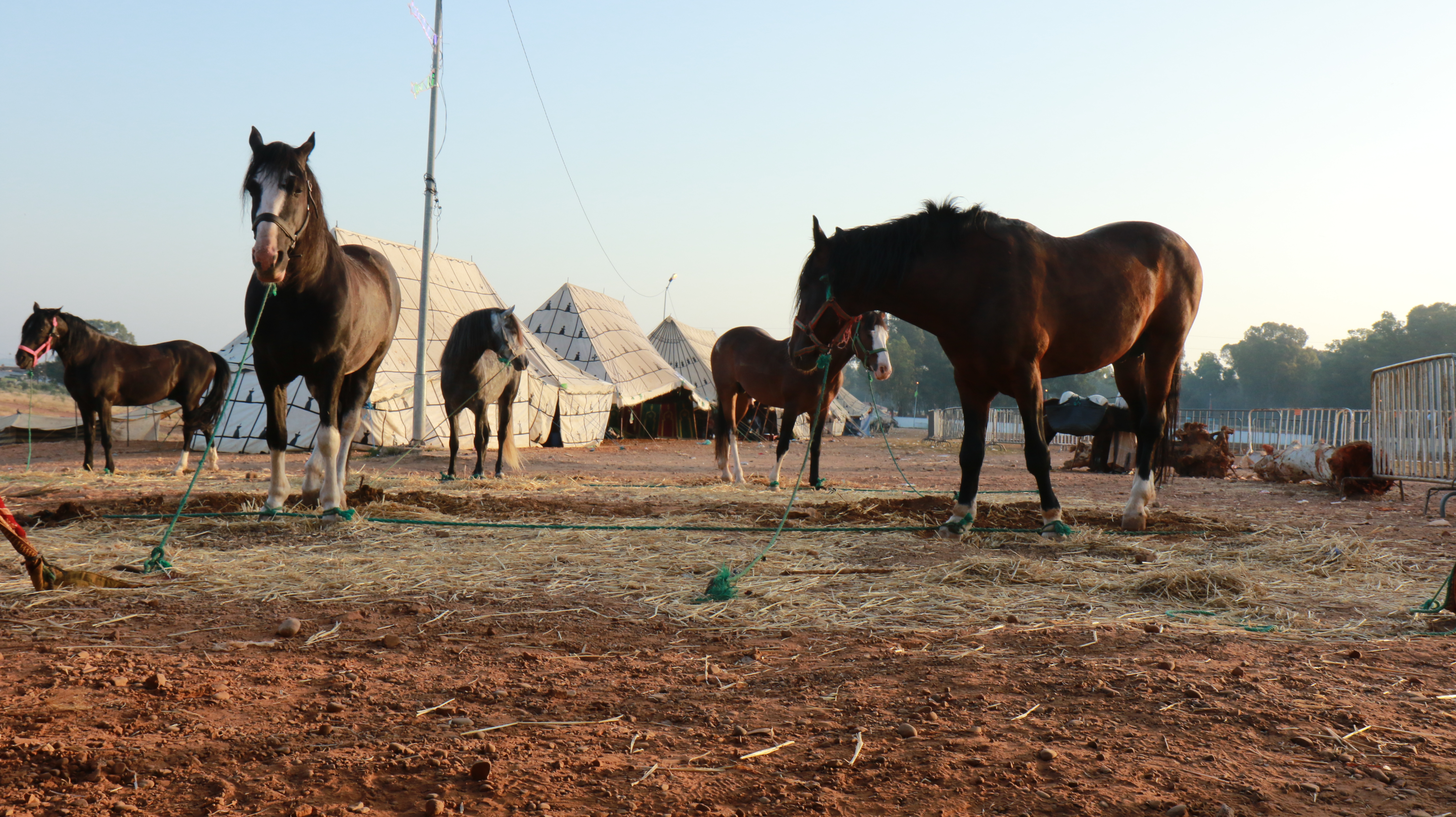
Sharam Sheik and his equid companions are tethered and finishing their hay in front of the team’s tent (not shown) on the fairgrounds in the early morning before the festival begins in Arbaoua. May 2016. Gwyneth Talley
Horses and tbourida compose a familial legacy for Amal and other riders. Amal says she will never sell Sharam Sheik; he is part of the family. Amal surrounds her family with her horse and his offspring. Like other women riders, she was raised around her grandfather’s horses, learned to ride at age 12, and attended and rode in tbourida festivals where family members participated. Amal’s daughter Lilia toddled confidently around Sharam’s long white legs, and now rides a pony of her own with Amal as her instructor. When Amal gave birth to her son, she named him Ghali. Close to the same time, Sharam sired his first foals and Amal named the first filly Ghalia. Both names mean “treasured” or “expensive.” Amal, Mehdi, and their children live in the city of Kenitra, but keep the horses on their nearby farm. Mehdi travels for his horse training business, and Amal works as a mounted police officer in the city, utilizing her love of horses not just for tbourida, but for a career.

Mehdi, Amal’s husband, makes a suggestion to Amal before she mounts Sharam Sheik for a festival in Arbaoua. May 2016. Gwyneth Talley
Despite the nine all-female troupes and other women riding with men’s teams in Morocco, it is still difficult for women to compete in this male-dominated sport. In 2019, Morocco submitted a proposal for tbourida to be added to UNESCO’s Safeguarding of Intangible Cultural Heritage list, but it remains to be seen if men and women will be included and acknowledged.
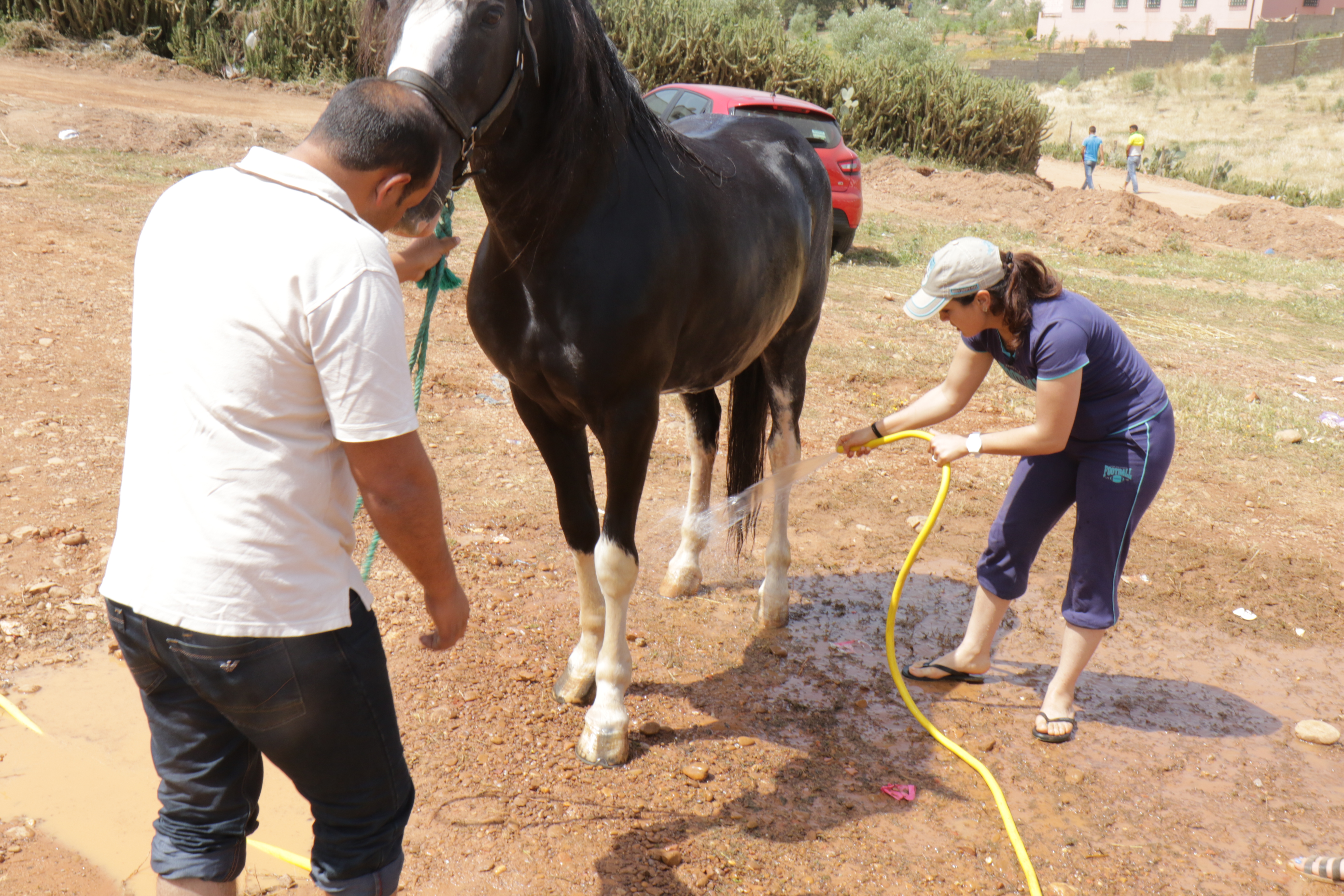
Amal meticulously bathes Sharam Sheik in the morning so his coat will be shiny and splendid before a festival. Sharam sometimes plays with Amal, sneaking the hose out of her hands for a quick slurp of water. Arbaoua. May 2016. Gwyneth Talley
Gwyneth Talley is a PhD candidate in the Department of Anthropology at the University of California–Los Angeles, a keen equestrian, a Fulbright alumna, and a National Geographic Explorer. Her documentary film Gunpowder Women is set to wrap up filming this year and will be available for viewing in 2020. Follow her on Instagram or Twitter at @WanderinGwyneth.
Cite as: Talley, Gwyneth. 2019. “Galloping Horses and Gunpowder Women.” Anthropology News website, May 16, 2019. DOI: 10.1111/AN.1170

